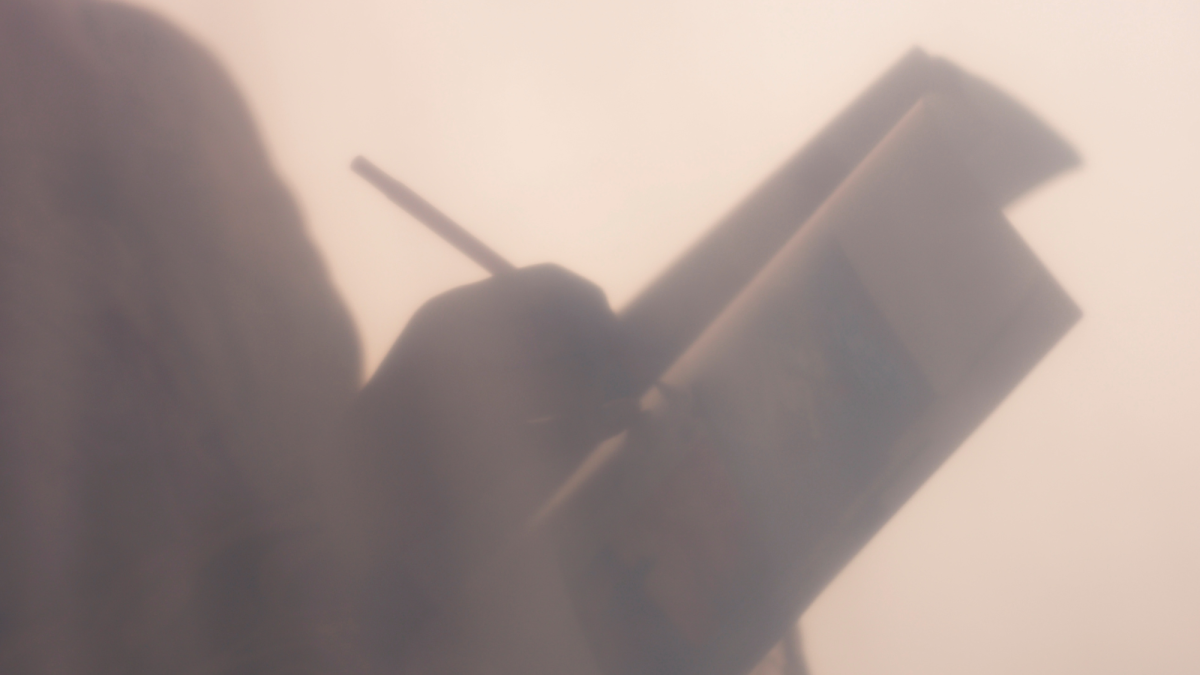The engine sputtered to life. My sister hastily brandished her phone. My dad leisurely shoved in his earplugs. We began slowly but surely chugging along the water’s surface, in search of an open swath of water to take off from. I sat restlessly, as all the sights and feelings raced by. Soon, we began accelerating faster and faster, and then, we lifted off.
As the stomach-turning sensation of becoming airborne overtook my senses, I began to imagine that I was riding alongside the Wright Brothers on their historical first flight. As the seaplane climbed higher and higher, I gazed down at the cityscape beneath us, awestruck. Towering skyscrapers had hunkered down into tiny pixels, roads had elongated and twisted into a conglomeration of crisscrossing branches, and I squinted in amusement as I traced the shoreline to the horizon, carving out all the water within my sight. Seeing the world from way up high in the sky, I felt like I had somehow stumbled into the shoes of an inventor. It’s exhilarating moments like these that manage to rekindle a fire within me—one that burns bright and hopeful for the future that I long to see.
In contrast to the child-like curiosity spurred on by the seaplane flight, these days, I find that big, influential tech companies aiming to “change the world” often fall dramatically short of their boastful assertions.
Particularly at Facebook—now newly christened Meta, which I refuse to call them by—where I interned this summer. There, they boldly strive to collectivize the world’s most talented engineers and designers to work towards “connecting the world together.”
Whether it be further encapsulating people in a sterile representation of the real world, helplessly copy-pasting TikTok’s dangerously enrapturing features, pouring millions of dollars into creating useless sunglasses that overheat in the sun for the rich to record their children with, working there made me lose sight of the company’s self-proclaimed purpose.
My day to day work didn’t seem any more promising. As a product design intern, my job was to resolve friction between engineers, designers, and product managers to determine how a few measly buttons would be best arranged on an interface. I dutifully sat through hour-long meetings where we agonized over the most meaningless details, only to finally settle on a vague, half-baked interpretation of what the extravagant share page would look like. I effortlessly incorporated pre-made templates into my designs to illustrate how the UI interaction would play out when long-pressing a photo. For each of these I had to churn out, I would then have to spend hours trying to recuperate from the listlessness that I felt, opting to plaster on a customer-service-worthy smile every time I felt like I was starting to crack along the edges.
Feeling alone and discouraged, I decided to seek refuge by reaching out to other teams at Facebook that I felt were doing something substantial. Like an archaeologist, I devoted hours of my free time to scouring the depths of Facebook using the employee-only internal search tool. I uncovered signs of passion and excitement, emotions which I almost believed had gone long extinct in the workforce. I spent as much time as I could in meeting rooms, picking apart the brains of others and taking to heart as much advice as I could, so that I could begin to piece together the convoluted jigsaw of my own identity within the company.
By the end of my month-long excavation, I realized that the itch that had been nagging at me ever since the beginning was a result of a mismatching piece in the puzzle, a part deeply embedded within me that didn’t align with that of my team. We had different goals. It didn’t take me long to understand that it would be impossible for me to supplement my goals with theirs, as I couldn’t entertain the thought of desensitizing myself to the pains of working on a project that was clearly not suited for my interests.
I know what you’re thinking. “But, Nancy, you were just an intern..!” While it is true that interns should not have total free reign over their work, the full timers’ job didn’t seem any more capable of agency either. I witnessed numerous “reorgs” where employees were tossed onto other teams that were “higher impact” and expected to perform as equally well on something that they were not originally hired for. Although big companies claim to give the interns “real work,” the truth is, even the so-called “real work” is, at times, completely useless.
This summer, Facebook announced that they would be delaying full-time offers to interns, and there’s a chance that they won’t be giving out any more offers this year. People were angry. They were angry that they had to go through the laboriously monotonous process of applying, interviewing, and leet-coding again. They were angry that this path of security that they had sacrificed so much for was no longer as secure.
And to this, Zuckerberg eloquently stated in a Q&A two weeks ago that, I quote, word for word, “Some of us should not be here,” proceeding to announce that he would soon be turning up the heat, expecting top-notch performance levels from everyone from here on out. He declared those unable to keep up with the strenuous workload should retreat elsewhere.
I get that some of us have hungry mouths to feed. I get that some of us require the job to remain in this country. I get that many of us students have crushing loans that we need off our backs. I get that this path, adorned with free food and promises of security, is a major opportunity that is hard to come by and even more difficult to pass up. But still, I can’t help but think that, like a utopia, this state of nirvana isn’t meant to last.
This relationship between Facebook and its workers reminds me of the attachment styles between parents and their children. The methods by which a parent responds to the needs of their child develops an attachment pattern, which is then reflected in the methods by which their child bonds with others. In a secure attachment style, a parent looks out for their child and trust is properly formed between them.
Conversely, I had an insecure attachment style with Facebook. From being denied the ability to switch onto a project more fitting to my interest, to feeling apathetic about the incessant cycle of termination of projects, to having my opinions haphazardly brushed aside, it felt like I was stranded alone. Such a transactional relationship antagonizes the concept of building trust, and so companies like Facebook often harbor a menacing work environment that makes workers feel the need to fend for themselves.
As the seaplane descended closer and closer to the water, my hesitations came into contact with reality. Although every person I had confided in, every situation that I had sensed was off was just a small, faintly discernible ripple, their collective lapping at my conscience urgently beckoning me to take flight from this desolate abyss had succeeded in stirring my indecisive self into motion. As we touched down on the water, I began to take notice of just how small of a part I played in the grand scale of the large Facebook machine. In the sky, freed from the restraints of my internship, I could spread my wings and take off in any direction, from any vantage point I desired. Meanwhile, on the ground, I felt cramped between the structured streets that drained the liveliness out of me, giving me tunnel vision.
Working at Facebook has brought to my attention how incredibly fearful I am of growing accustomed to the “optimal” life of comfort. I don’t want to lose sight of the thrill that only overcoming challenges incessantly can bring me. I don’t want to stockpile a massive stash of cash for future use, as doing so would mean that I would have accomplished nothing, and my life would have ultimately amounted to nothing. I trust that there is more to life out there—countless different facets that are worth exploring and understanding. I now know that working mindlessly for the whims of another is not what I desire for myself, and cannot fathom a future where I cease to feel a childlike curiosity towards the inner workings of the world.







